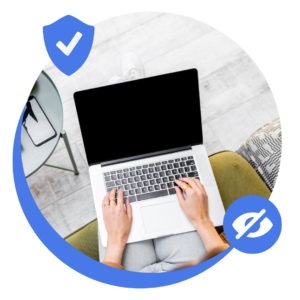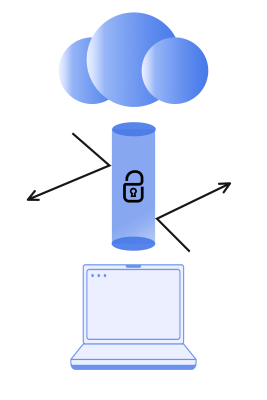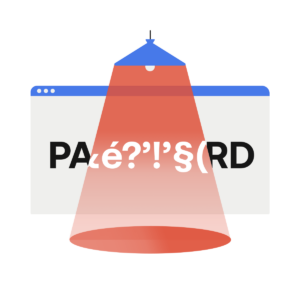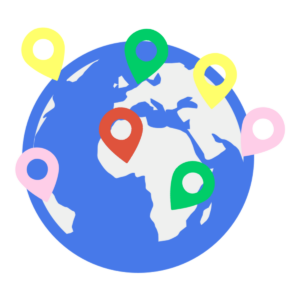VPNs are quite trendy, but what are they? In the ever-expanding digital landscape, one term that frequently pops up in conversations about online privacy and security is VPN. What exactly is this mystical acronym, and why do people swear by its digital prowess?
The Internet isn’t safe by default
The genesis of VPNs: from securing corporations to empowering individuals
Developed by Microsoft in 1996, VPNs didn’t start as the superhero of personal privacy. Its origins trace back to corporate networks. Gurdeep Singh-Pall, the Microsoft employee who invented the first VPN, designed the first Point-to-Point Tunneling Protocol, providing a secure channel for remote employees to access company resources. Over time, VPNs evolved beyond the realm of boardrooms, finding their way into the toolkit of digital citizens seeking a shield for their online activities.

Why VPNs? The shield for digital footprints
A VPN works by creating a secure, private connection over the internet. It’s like putting all your online activity into a secret tunnel protected from prying eyes. Even if someone manages to intercept your data, they won’t be able to make sense of it because it’s encrypted.
By encrypting your data, a VPN ensures that your online activities, from banking to messaging, remain confidential and protected from potential cyber threats. Why do people opt for VPNs? It’s all about privacy and security. Whether you’re surfing the web from a cosy coffee shop or connecting to public Wi-Fi during your globetrotting adventures, a VPN adds an extra layer of protection.

How it works: the VPN magic unveiled
The operation of a VPN is straightforward yet ingenious. When you access the Internet, your data packets are encrypted by the VPN software on your device before being sent to a VPN server. This process not only masks your originating IP address but also secures the data, making it indecipherable to unauthorised parties.
All VPNs have at least 2 utilities:
- Security and privacy
- Location
Security and privacy:
When you use a VPN, it encrypts your internet connection, making it more secure. Imagine you’re sending a secret message to a friend. A VPN is like a special envelope! You write your message (your Internet data), seal it in the envelope (encrypt it), and send it to the VPN office (the VPN server). They unlock it (decrypt it), put it in a plain envelope, and send it to your friend (the website). Your friend sees the message, but no one else knows what it was because the VPN office kept it secret! This way, your Internet activity stays hidden and secure, even on untrusted networks like public Wi-Fi hotspots.

Location:
A VPN allows you to mask your real IP address with one from the VPN server, effectively anonymizing your online activities. This can be useful for bypassing geo-restrictions, accessing region-locked content (like streaming services or websites), or bypassing censorship in certain countries. By connecting to a VPN server in a different location, you can appear as if you’re browsing from that location, granting you access to content or websites that might be restricted in your actual location.

Corporate vs. Consumer VPNs
VPNs are categorised into corporate (enterprise) and consumer types. Corporate VPNs connect geographically dispersed offices, ensuring secure data transmission across the public Internet. Consumer VPNs, on the other hand, protect individuals when accessing the Internet from public Wi-Fi networks or when seeking to maintain privacy from ISPs and websites.
Examples where VPNs shine bright
The use of a VPN is recommended in various scenarios, particularly when connecting to the Internet via public Wi-Fi hotspot. A VPN is crucial for safeguarding your data against unauthorised access and maintaining privacy from your Internet service provider or any third-party trackers.
Public Wi-Fi guardian:
Ever wondered if public Wi-Fi are secure? Picture this: you’re sipping your favorite brew at a local café, enjoying the free Wi-Fi. Little do you know, cyber snoopers might be eyeing your data. A VPN encrypts your connection, turning that precarious public Wi-Fi into a secure haven.
Streaming unleashed:
Ever been frustrated by geographical restrictions on your favorite streaming service? VPNs come to the rescue, allowing you to virtually teleport to a different location, unlocking a world of content. In another way, it can also help you watch your favorite content when traveling abroad.
Choosing the right VPN
Choosing the right one can feel like wandering through a technological labyrinth. Consider factors like encryption protocols, server locations, and a no-log policy. It’s not just about anonymity; it’s about finding a digital companion that aligns with your online lifestyle.
However, it’s essential to remember that VPNs are not a substitute for antivirus software and should be used with comprehensive security measures. Choosing a trustworthy VPN provider is critical to ensure the privacy and security of your Internet activities.
Are free VPN services worth it?
While there are a few decent free VPN services, we don’t advise you to use them.
Why?
Running a VPN service requires a significant investment in infrastructure, including network pipes and servers. And that infrastructure needs to be funded somehow. If users aren’t paying for it directly, then it’s likely being covered by advertising, data collection, or other less-savoury methods.
Here’s another alarming reason to avoid free VPNs. Malware providers and criminal groups operate some of them. Instead of safeguarding your data, these services collect and exploit your personal information, either for their own purposes or by selling it to the highest bidder. So rather than being protected, you’re essentially being exploited.
Conclusion
In an era where digital privacy and security are paramount, VPNs emerge as a vital tool for individuals and businesses alike. By encrypting your Internet connection and masking your IP address, VPNs offer a layer of security critical in protecting your online activities. Whether you’re working remotely, accessing sensitive information, or browsing the Internet, a VPN provides the peace of mind that comes with knowing your digital life is shielded from external threats.
FAQs about VPNs
This can depend on several factors, including the distance to the VPN server you connect to, your internet service provider, and the level of encryption used by the VPN. You can find information about the impact of VPNs on internet speed by searching online for “[VPN speed test]”.
Latency: VPNs route your data through a VPN server, which often isn’t in your immediate location. This adds extra hops to the network journey your data takes, increasing the distance traveled and potentially adding latency.
ISP Throttling: In some cases, your Internet Service Provider (ISP) might intentionally slow or throttle your connection for certain activities. A VPN can sometimes help avoid this by masking your traffic, though it’s not always guaranteed.
Free VPN services are often less secure than paid ones, and some may even engage in data collection practices that compromise your privacy. It’s crucial to research any free VPN service thoroughly before using it.
VPN regulations vary greatly depending on the country. Some may have restrictions on VPN usage, while others may completely ban them. To determine the legal status of VPNs in your specific country, you can search online or consult official government websites or legal resources.






